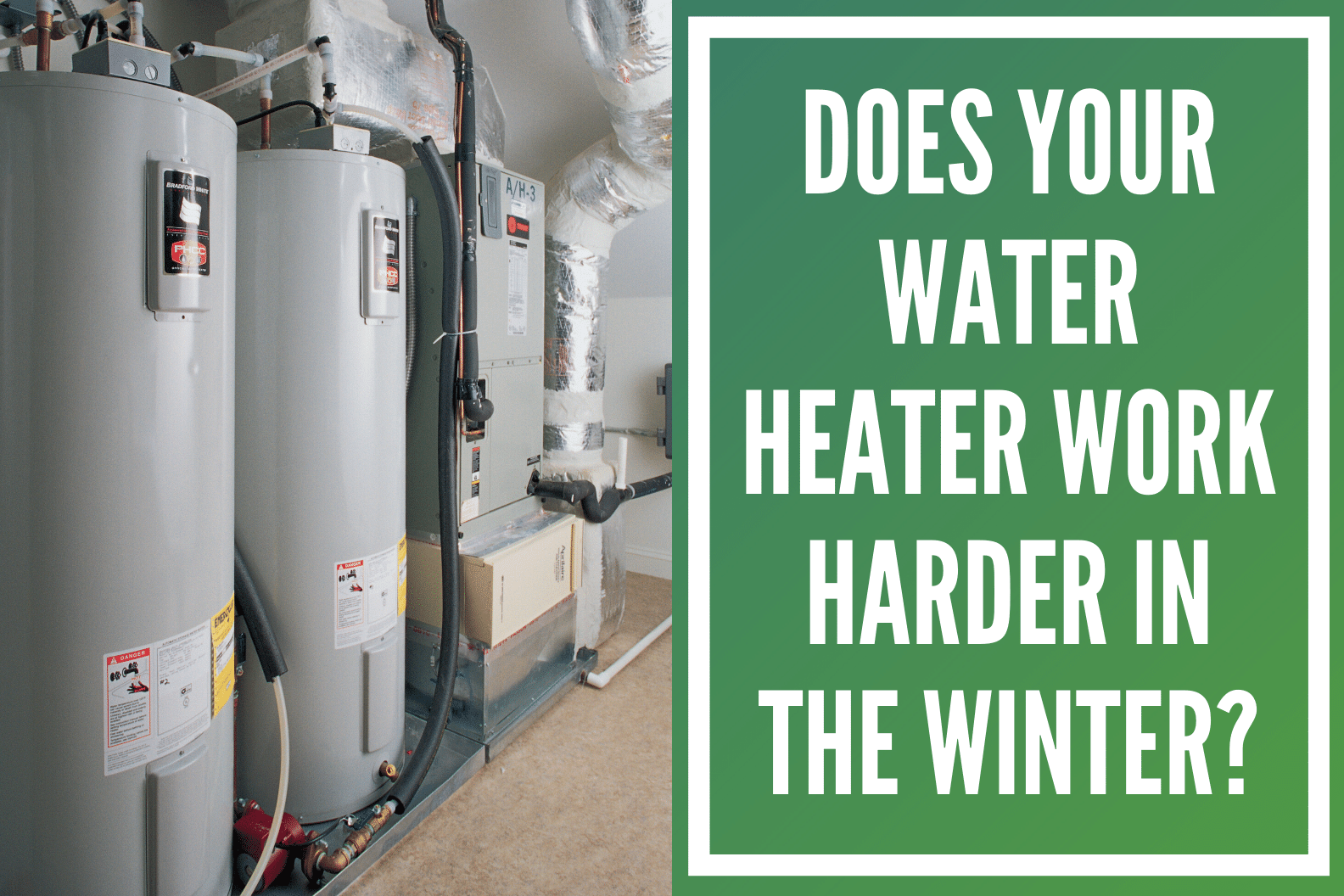Does your water heater really work harder during the cold winter months? Having just discussed various winter plumbing tips in last week’s blog, we’ve received a handful of questions in regards to hot water heaters. As you might assume, the timing of this is convenient, as the months we need our hot water heaters the most is during the winter.
Likewise, it certainly isn’t uncommon for homeowners to struggle with their hot water heaters more during the winter. Whether that be due to a lack of maintenance or simply a hot water heater that’s on its last leg, they’re under constant pressure when it gets cold outside. If you’ve been noticing a drop in your hot water heater’s overall performance, then this is likely the perfect blog for you! Additionally, if you are in the search for reliable water heater installation in Kansas City, don’t hesitate to contact our team today.
With all of this said, let’s first take a look at the many reasons how winter affects your hot water heater:
Colder water entering the house
As you might guess, when the air outside gets colder, so does the temperature underground. This then makes the fresh water entering your house that much colder. By the time it reaches the tank, your hot water heater has to work harder to heat the chilly water to the optimal temperature. To make matters worse, when new cold water enters the tank, it will immediately cool down the water that’s already been heating. All in all, it’s a cycle that requires the hot water heater to continuously be working. As a side note, for those with older heaters (8+ years), this job may prove to be nearly impossible!
Where is your hot water heater?
When homeowners fear the winter is taking a toll on their hot water heater, this is one of the first questions we ask. Why? Well, mainly because of the fact that they’re generally located in either the basement or garage. While these are certainly not bad spots to install them at, it’s important to note there is not much insulation in these spots and as a result, you can run into standing heat loss.
Standing heat loss is essentially what happens when you have cold air surrounding the tank. The heat escapes faster from the tank and then forces the hot water heater to run longer in order to reheat it.
How often are you using the hot water heater?
You wake up in the morning with snowflakes falling outside. What feels better than a long, warm shower? Chances are you and I aren’t the only ones who think this way! To add to it, you’re also most likely wearing more layers during the winter and will inevitably be washing more loads of laundry. Both of these will result in your water heater working longer and harder!
Now that it’s perfectly clear that hot water heaters work MUCH HARDER during the cold, Kansas City winters, what can you do about it? What can you do, as a homeowner, to ensure your hot water heaters always last at least ten years? Here’s a few best practices to always implement when the temps start dropping:
Annual flush
We’ve mentioned it before in previous blog posts, but the importance of an annual hot water heater flush can’t be understated! This has always been and will continue to be one of the most effective maintenance tactics for water heaters. Particularly with the higher rates of hard water here in Kansas City, sediment has the potential to build up at the bottom of the tank. In any case, we always recommend having a licensed plumber out to complete this to ensure your heater is operating at max efficiency.
Adjust the thermostat
As a general rule of thumb, the recommended eco-friendly temperature for water heaters is 120°F. This is due to a few different reasons, including energy efficiency. However, as referenced above, making water feel hot in the summer is a whole lot easier than doing so in the winter. Having said that, you might try turning up the temperature 5° to 10° higher. It’s worth noting that some manufacturers still suggest 140° is the ideal temperature, so you’ll be plenty fine if you’re in-between the two. The one thing you’ll want to be aware of though is if you have any children. Make sure to test it yourself on the faucet farthest from the hot water heater. Turning it up too high increases the chances of scalding occurring.
Insulation
In the opening section, we discussed how there’s a chance for standing heat loss when the heat is able to escape the tank. Just as we wrote last week with protecting any un-insulated pipes, the same can be said with your hot water heater. For one, it’s still worth insulating any exposed pipes going to and from the unit with foam sleeves.
When it comes to the tank itself though, there’s a little more to the equation. To give you a brief overview, most of the newer water heaters don’t need any extra insulation. If you look at the sticker on your tank, you’ll see an R-Value. Essentially, with this number, the higher it is, the better. If your R-Value happens to be below 24, added-insulation is probably a good idea.
If you are opting to go the insulation route, purchase an insulating blanket from your local hardware store. The actual installation process is fairly straightforward. You’ll want to:
- Turn off your hot water heater.
- Wrap the blanket around the tank and cut out notches for electric panels, gas valves, or anything else that would need to be easily accessed.
- Tape insulation blanket to the tank.
- Turn power back on.
- Depending on what your thermostat was previously set to, you can likely lower it a few degrees. This is especially the case if it’s hovering closer to 140°.
Time for an upgrade?
Unfortunately, water heaters aren’t designed to last forever! For the most part, tank-style hot water heaters are going to last roughly 8-12 years and tankless models go for around 20 years. Remember though, a hot water heater that’s not operating at prime performance is actually costing you money each month on wasted energy. Not to mention, it’s an added luxury that we often take for granted!
Nonetheless, the winter is clearly when we need our hot water heaters the most! If yours is causing the water to take forever to heat up, it might make sense to consider a replacement this winter. Many of the newer models on the market today will prevent many of the cold-related issues displayed throughout this blog! They’re typically built for premium-efficiency and insulation likely won’t even be an issue!
Hire Kansas City’s hot water heater experts!
If you need some help from a team that’s worked with nearly every hot water heater model (both tank and tankless), don’t hesitate to give your friends at Stine-Nichols Plumbing a call! We understand the cold winters here in Kansas City can be particularly tough on hot water heaters. We’ll make sure your hot water heater continues to operate at an optimal performance!
To learn more about our residential hot water heater services in Kansas City, click here!


